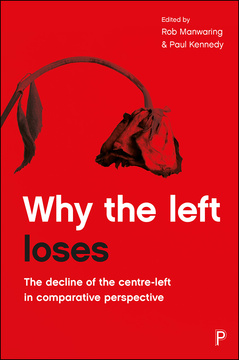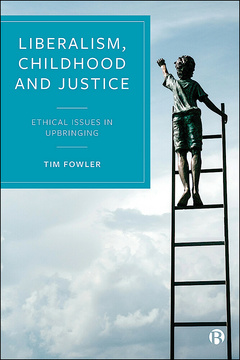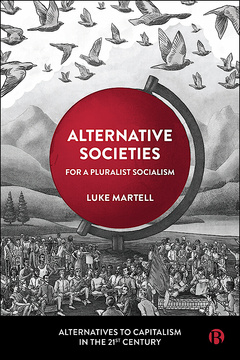Published
Feb 11, 2025Page count
218 pagesISBN
978-1529212594Imprint
Bristol University PressPublished
Sep 12, 2023Page count
218 pagesISBN
978-1529212587Dimensions
234 x 156 mmImprint
Bristol University PressPublished
Sep 12, 2023Page count
218 pagesISBN
978-1529212600Imprint
Bristol University PressPublished
Sep 12, 2023Page count
218 pagesISBN
978-1529212600Imprint
Bristol University PressIn the context of sustained economic and environmental crises, marked by extreme inequalities of wealth, rising xenophobia, racism and precarity, never has the need for a radical change of system been so pressing.
This book is an invitation to think the world otherwise. The author breathes new life into socialist thought through the deployment of an intersectional lens, bringing diverse struggles for emancipation both within and outside the Global North into dialogue with one another.
In doing so, he offers the kind of bold and holistic thinking the present situation calls for.
“Both utopian and pragmatic, this book offers a bold, inclusive invitation. Foregrounding women-of-colours' and decolonial theories, Masquelier reframes socialism in a broader, radically interconnected framework. I highly recommend this book.” AnaLouise Keating, Texas Woman’s University
“Intersectional Socialism presents one of the most coherent and sophisticated outlines of a radical and emancipatory political and intellectual project of recent times.” David J. Bailey, University of Birmingham
Charles Masquelier is Associate Professor in Sociology at the University of Exeter.
1. Introduction
2. Intersectionality, Pluriversality, and Libertarian Socialism
3. Pluriversal Intersectionality and Capitalist Domination
4. Pluriversal Emancipation
5. Work, Property, and Resource Allocation
6. On the ‘Production of Life’ and Labour of Care
7. Beyond the Modern Liberal-Capitalist State
8. Conclusion















